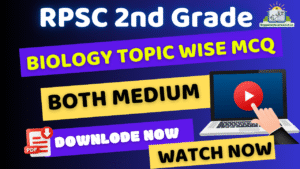NEET Exam Most Expected Questions
Here are some expected types of questions across all subjects (Biology, Physics, and Chemistry) for the NEET exam:
### **Biology**
1. **Genetics and Molecular Biology**
– Questions on Mendelian inheritance, dihybrid cross, and laws of segregation.
– Genetic mutations and their consequences.
– DNA replication, transcription, and translation processes.
– Tools and applications of recombinant DNA technology (cloning, PCR, etc.).
2. **Human Physiology**
– Mechanism of action of hormones and hormonal regulation.
– Functioning of the heart (cardiac cycle, ECG).
– Respiratory system: Gas exchange and transport.
– Neuron structure and signal transmission (synapse).
3. **Plant Physiology**
– Photosynthesis: Light and dark reactions.
– Plant growth hormones (auxins, cytokinins, gibberellins, etc.).
– Water transport (transpiration, cohesion-tension theory).
– Mineral nutrition in plants (macronutrients and micronutrients).
4. **Ecology and Environment**
– Population dynamics, food chains, and ecological pyramids.
– Biogeochemical cycles (carbon, nitrogen cycles).
– Biodiversity hotspots, conservation methods, and environmental issues.
5. **Reproduction**
– Human reproductive system and menstrual cycle.
– Gametogenesis (spermatogenesis and oogenesis).
– Fertilization, embryogenesis, and parturition.
– Contraceptive methods and their biological basis.
6. **Evolution**
– Darwin’s theory of natural selection.
– Adaptive radiation and convergent evolution.
– Hardy-Weinberg equilibrium and genetic drift.
7. **Biotechnology**
– Restriction enzymes, vectors, and cloning.
– Applications in medicine (gene therapy, insulin production).
—
### **Physics**
1. **Mechanics**
– Newton’s laws of motion, free-body diagrams, and friction.
– Work, energy, and power (kinetic and potential energy concepts).
– Rotational motion (torque, angular momentum, moment of inertia).
– Circular motion and centripetal force.
– Gravitation: Kepler’s laws and satellite motion.
2. **Electrostatics and Electrodynamics**
– Coulomb’s law and electric field.
– Capacitors, series and parallel arrangements.
– Current electricity: Ohm’s law, Kirchhoff’s laws, and resistors.
– Magnetic effects of current and electromagnetic induction.
– Alternating current: Transformers, inductors, and capacitors.
3. **Thermodynamics**
– Laws of thermodynamics.
– Concepts of heat, temperature, and specific heat.
– Carnot engine, efficiency, and entropy.
– Calorimetry and phase transitions.
4. **Waves and Optics**
– Simple harmonic motion (pendulums, springs).
– Wave propagation, sound waves, Doppler effect.
– Reflection, refraction, and total internal reflection.
– Lenses and mirrors (ray diagrams, magnification).
– Interference and diffraction of light (Young’s double-slit experiment).
5. **Modern Physics**
– Photoelectric effect and Einstein’s equation.
– Atomic models (Bohr’s model, quantum numbers).
– Nuclear physics: Radioactive decay, half-life, and nuclear reactions.
– Semiconductors: Diodes, transistors, and logic gates.
—
### **Chemistry**
#### **Physical Chemistry**
1. **Thermodynamics**
– First law of thermodynamics (internal energy, enthalpy).
– Gibbs free energy and spontaneity.
– Entropy changes in reactions.
2. **Chemical Kinetics**
– Rate laws and reaction order.
– Arrhenius equation and factors affecting reaction rates.
– Collision theory and activation energy.
3. **Equilibrium**
– Law of chemical equilibrium (Le Chatelier’s principle).
– Ionic equilibrium: pH, pKa, and buffer solutions.
– Solubility product and common ion effect.
4. **Electrochemistry**
– Nernst equation and electrochemical cells.
– Electrolysis and Faraday’s laws.
– Standard electrode potential and EMF of cells.
5. **States of Matter**
– Ideal gas laws (Boyle’s, Charles’s laws, etc.).
– Real gases (van der Waals equation).
– Kinetic theory of gases.
#### **Inorganic Chemistry**
1. **Periodic Table and Periodicity**
– Trends in atomic radius, ionization energy, and electronegativity.
– s-block, p-block, d-block, and f-block elements.
2. **Coordination Compounds**
– Ligands, coordination number, and isomerism.
– Werner’s theory and crystal field theory.
– Applications of coordination compounds in daily life.
3. **Chemical Bonding**
– VSEPR theory, molecular orbital theory, and hybridization.
– Ionic, covalent, and metallic bonding.
4. **Hydrogen and its Compounds**
– Properties of water, hydrogen peroxide, and hydrogen bonding.
– Hydrides (ionic, covalent, and metallic).
5. **Environmental Chemistry**
– Greenhouse effect, global warming, and ozone depletion.
– Water and air pollution.
#### **Organic Chemistry**
1. **General Organic Chemistry**
– Bonding in organic molecules (sigma and pi bonds).
– Nomenclature, isomerism (structural and stereoisomerism).
– Inductive effect, resonance, and hyperconjugation.
– Reaction mechanisms (nucleophilic substitution, elimination, and addition).
2. **Hydrocarbons**
– Alkanes, alkenes, and alkynes (preparation, properties, reactions).
– Aromatic hydrocarbons (benzene and electrophilic substitution).
3. **Alcohols, Phenols, and Ethers**
– Preparation and properties of alcohols and phenols.
– Reactions of ethers and their uses.
4. **Aldehydes, Ketones, and Carboxylic Acids**
– Nucleophilic addition reactions of carbonyl compounds.
– Oxidation and reduction of aldehydes and ketones.
5. **Biomolecules**
– Carbohydrates, proteins, and nucleic acids.
– Enzymes and their functions.
– Lipids and their classification.
—
These topics are frequently asked in the NEET exam and are essential for a thorough preparation across all subjects.





 Jhunjhunu, Rajasthan (India) – 333025
Jhunjhunu, Rajasthan (India) – 333025